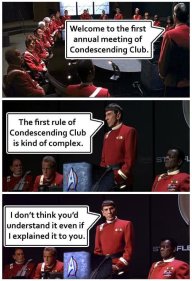Someone earlier referred to not reading notation as "musical illiteracy" , which is just not accurate, and misleading if the reader doesn't know better. Reading notation is a tool, and for all of it's benefits, it is not the source of musical knowledge or drumming ability, and not what determines your level of musicianship.
Hey, Bud7h4
I was tempted to not respond to this post because there really isn't much more to say on this entire matter. After all, we've gone on for 16 pages already!
However, I feel that leaving your post without a response might send the wrong message to people who see this thread in the future. It also might leave YOU with a mistaken interpretation of previous comments...which would be unfortunate. When I read what you wrote in this post (especially the pre-edited version), I get the feeling that you think some of us have been throwing insults at nonreaders. I've gotten this same feeling from some other people's posts as well...posts that talk about "intelligence," for example.
Just to be 100% clear, I myself have never once intended any sort of insult toward nonreaders...and I'm not sure that anybody else has either. As one of several people who've used words like "illiterate," I would like to point out that there is an official definition of that word. To make sure that I wasn't mistaken, I actually just looked it up. The definition of "illiterate" is "unable to read or write." That's all it means—nothing more, nothing less.
A few pages ago, I stated that I see music as being like a language. Obviously, I didn't invent that analogy. It's been around for many decades at least. I then pointed out that if we follow that analogy, we would have to conclude that PLAYING music is like speaking the language, and READING music is like reading the language.
So...how many wonderful speakers are actually unable to read or write (illiterate)? I would guess that the answer is very few.
And how many wonderful musicians are actually unable to read or write (illiterate)? Again, I would guess that the answer is very few. Yes, in the drumming world, we all know about Buddy and Dennis. So they would be part of the few. But on the whole...when we look at the great drummers—the Billy Cobhams, the Omar Hakims, the John Robinsons, the Steve Gadds, etc.—we find that virtually none of them are illiterate (again, using the official definition).
That is all that is being said, and it is being said because it is true. There are no insults going on here.
Since I began learning to read two years ago, it has taught me nothing that I don't already know and understand musically, except how to read notation.
I will be genuinely interested to see if this statement remains true for you with the passing of time. I can tell you that I myself have learned countless things about drumming thanks to my reading ability. I believe that the same thing will happen for you. In fact, you can start immediately. Now that you have become a reader, purchase yourself a copy of
Afro-Cuban Rhythms for Drumset. I think you'll find that you absolutely learn some things that you didn't "already know and understand musically."
I sincerely hope that this post has clarified some things that were previously stated by me and others. The last thing we want is for this thread to be seen as some sort of ugly name calling match. It isn't that at all. It's just a debate. No ill will intended whatsoever.


